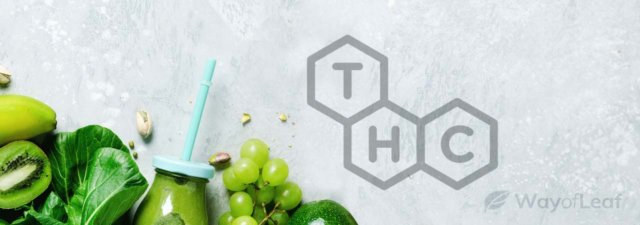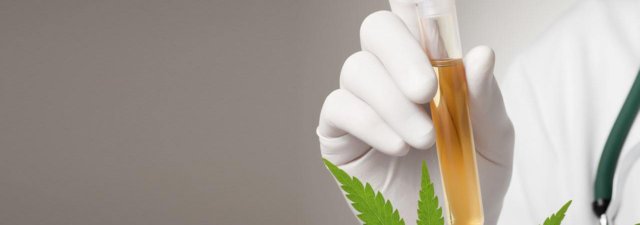Drug testing and drug screening remain a pretty standardized practice across nearly all hiring organizations. It’s crucial, as a cannabis user, when submitting your resume, to know what to expect when that telephone rings. This is particularly important if your potential employer calls you for an interview – and later (hopefully), a drug test.
In this article, we point out the difference between a drug screen and a drug test. We highlight a few essential things that are worth knowing. This will help keep you relaxed before you undergo a test for the presence of marijuana in your system.
The Difference Between a Drug Screen and a Drug Test… Could Cost You Your Job!
There’s no real official or “formally” recognized difference between a drug screen and a drug test. However, there is a big difference between the two. Knowing that difference could result in you getting hired for your new job – or fired from an existing one. That is if they enforce randomized drug testing where you work.
A “drug screen” is a quick scan of bodily fluid or cellular tissue, e.g., urine, blood, hair, saliva, etc. The drug screen looks for the presence of known drug metabolites. When thinking of a drug screen, think speedy: Scans are quick, but tests take time.
Drug tests are much more involved than a simple, prompt screen, and take a lot longer.
Most people don’t realize that neither a drug screen nor a drug test looks for the drug compound in question. Instead, they look for the presence of the compound’s known metabolites. A metabolite is a chemical compound that’s a smaller, “broken down version” of the compound in question. For marijuana (tests for the use of THC), the metabolite that drug tests and drug scans look for is THC-COOH.
Almost immediately after you consume THC (whether it be via smoking, vaping, edibles, etc.), the digestive system and various other metabolic pathways in the body will start breaking down the active compound into smaller metabolites. THC-COOH is the primary metabolite in question. It can stay in human tissue for months. This is dependent (among other things) on the frequency of use and the metabolic rate of the consumer.
Drug Scans vs. Drug Tests… What is a Drug Screen?

A drug scan is a quick initial screening that tests your urine (or other bodily fluid/tissue) for THC metabolites. By far, the most common type of drug screen that employers use is EMIT screening. EMIT stands for Enzyme Multiplied Immunoassay Technique.
This technique is quick, simple, cheap (costs employers about $0.95 per drug tested for), and is generally pretty accurate. However, one downside is that it is prone to false positives. Some estimates believe that up to 10% of failed drug tests in the U.S. can be attributed to false positives. This percentage may not seem like a lot. However, if it were you that tested positive, wouldn’t you want to know that the test was accurate, and not just a mistake?
Fortunately, most employers realize this. Whenever a potential employee tests positive, the initial screening will be sent off for a further, more detailed analysis. This is the drug test.
How is a Drug Test Different From a Drug Screening?
Remember the following saying when trying to remember the difference between a drug screen and drug test: Tests Take Time. Drug tests are typically much more involved than “speedy” drug screenings. They incorporate much more sophisticated equipment to confirm the presence of THC metabolites.
The “gold standard” of the full-length drug test in the American market is generally the MS/GC test. This stands for Mass Spectrometry/Gas Chromatography testing. When a potential employee takes an initial UDT (urine drug test) screening, and the screen comes up positive, the urine sample will be sent off to a third-party MS/GC testing facility for confirmation of the THC-COOH metabolites.
So, why don’t companies do a drug test every single time, instead of doing a screening first?
Well, it comes down to cost. While drug screens are relatively cheap, actual MS/GC tests are fairly involved – and thus pretty expensive.
Employers don’t want to waste money on drug tests unless they’re necessary.
MS/GC tests are so accurate that they can determine whether or not the urine sample is even from a human. Back in 2011, Brazilian mixed martial artist Thiago Silva found this out the hard way. His mandatory urine sample was deemed “non-human” by the Nevada State Athletic Commission (NSAC).
If you ever fail an initial drug screening, you can rule out a false positive by mandating the sample to be tested with MS/GC techniques. It could mean the difference between having a job or not.
What Could Cause a Marijuana Test to Show Up Positive?
Another thing you might be wondering is, “how can you get a false positive on a marijuana drug test?” Well, one of the most popular “urban myths” is that you can test positive through secondhand smoke inhalation (“passive inhalation”). However, studies have shown that this is virtually impossible.
Neither are you going to fail a drug test from eating hemp foods. Some people think that there are trace amounts of THC in hemp-based foods supplements. Examples of these include hemp protein powder, hemp seed, and hemp hearts. However, this is a complete myth. Nutritional hemp seeds do not contain THC (or any other active cannabinoids for that matter).
Here are a few other (more practical) reasons for what can cause a false positive on a marijuana drug test:
- Taking Over-the-Counter NSAIDs: Studies have shown this to be incredibly improbable. However, over-the-counter Non-Steroidal Anti-Inflammatory Drugs (NSAIDs) such as Advil, Motrin, Aleve, etc. can skew initial EMIT screenings. They can do so to the point that they would show up positive. However, the subsequent MS/GC drug test would quickly correct the results and deem the EMIT as a “false positive.” Therefore, the potential employee would not be subject to any penalization.
- Taking Efavirenz: Efavirenz (Sustiva) is a relatively common prescription medication for HIV/AIDS patients. It is known to cause false positives on both EMIT screenings and MS/GC tests.
- Consuming CBD Oil: This is by far the most “worrisome” concern for cannabis users. It can end up causing both a failed drug screening and a failed drug test. Full-spectrum CBD oils (and other full-spectrum CBD products) do, in fact, contain trace amounts of THC. Therefore, if consumed frequently enough, THC-COOH metabolites can build up to high enough levels that users would fail a test. This can – and has – happened in the past. Unfortunately, there is typically not much you can do about it other than pleading with your MRO (medical review officer).
You may take CBD oil or other CBD-infused products daily and are concerned about failing an upcoming drug test. If so, you may want to switch to CBD isolate oils instead, as these are 100% THC free.
Final Thoughts on the Difference Between a Drug Test and a Drug Screen
Well, hopefully, you now know the difference between a drug screen and a drug test. Simply put, drug screens are cheap options that provide employers with a quick and initial screening.
MS/GC drug tests are in-depth analysis that is used to verify and confirm the presence of THC and its metabolites. Remember, initial drug screenings are prone to false positives. So, if you fail one, verify with your employer that the screen has been confirmed with an MS/GC test. If you don’t, it could be the difference between having a job and not.
![How to Pass a Drug Test Today [5 Hacks]](https://wayofleaf.co/wp-content/uploads/2019/08/wol-banner-how-to-pass-a-drug-test-640x225.jpg)









![How Long Does Marijuana Stay in Your System? [Fully Explained]](https://wayofleaf.co/wp-content/uploads/2019/06/how-long-does-weed-stay-in-your-system-640x225.jpg)
